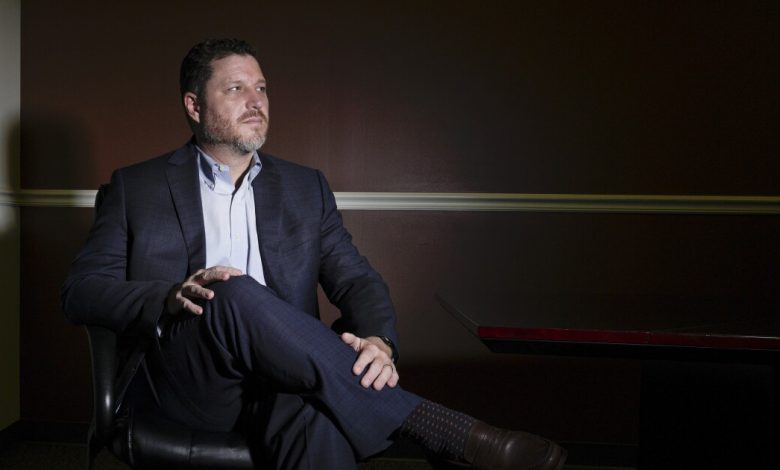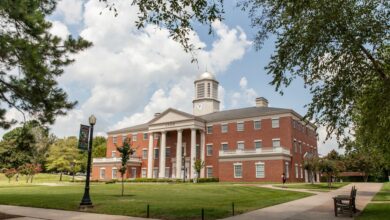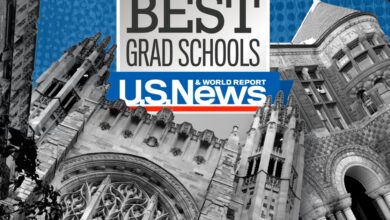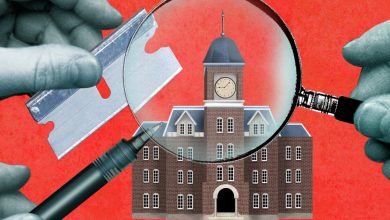Florida Bill May Shield University Presidential Searches From the Public

Florida legislators are building support for a new law that would shield the identities of all but the top contenders for public college and university president jobs — a measure that’s drawn criticism from advocates for transparency and shared governance.
The proposed law, which will soon be heard by the full state Senate, would require colleges to conceal applicants’ identities until 21 days before a candidate is chosen. It would also exempt from Florida’s open-records laws meetings that disclose identifying personal information of those who don’t become finalists for the job. (A House version of the bill has been amended to keep applicants’ identities under wraps until 14 days before finalists are chosen.)
The bill is in an effort to attract more applicants to top leadership positions at Florida’s public universities, according to the Senate bill’s sponsor, Sen. Jeff Brandes, a Republican.
“Florida has some of the broadest public-records laws in the country,” said Brandes. Those laws could be a deterrent to candidates who are fearful their employer may find out, he said, or who fear it it could be a blow to their reputation if they don’t make the final cut.
“In any private-sector job I’ve ever had, if I was going to go out and find a new job, I wasn’t going to tell my employer that I was out there looking for a new job until I’d secured a new job,” he said.
“We’ve heard this from headhunter groups and presidential-search committees. They feel like they’d get a broader pool of applicants if we’d protect the names of those who are applying, especially those that weren’t selected as finalists,” Brandes added.
If passed, the bill would go into effect immediately, potentially influencing presidential searches already underway. Presidents at four of Florida universities — the University of South Florida, the University of Florida, Florida International University, and the University of North Florida — have announced their resignation within the past few months.
Opponents of the bill challenge the idea that public-records exemptions would attract more qualified candidates. In a letter to the Senate Education Committee, Pamela Marsh, executive director of the First Amendment Foundation, pointed to evidence that Florida’s public colleges and universities have been doing just fine with existing open-records laws. They’ve steadily risen in public rankings, she wrote. In fact, the most recent search for Florida State University’s president drew a number of finalists from “esteemed institutions” with “extensive research backgrounds.”
Andrew Gothard, president of the United Faculty of Florida agrees. “We can’t be failing to draw in highly qualified candidates and also be producing the best higher-education system in the country,” he said.
Gothard thinks the four system university campuses looking for presidents this year are the impetus for the bill. “We think the legislature and the governor are wanting to install political appointees in those roles, and this law would allow them to do that much more easily,” he said.
He pointed to the state’s existing sunshine laws as a safeguard against this sort of political interference. “Because of Florida’s famously progressive sunshine laws … the public has access to the full list of candidates during the hiring process,” Gothard said. “This ensures that the billions of public dollars being poured into our colleges and universities are going to be led by presidents who are qualified and don’t have clear conflicts of interest and don’t exert undue political influence.”
Florida’s existing open-records laws have also proven to help draw public pushback against the proposed law that allowed candidates who may not have been suited for the job to be nominated. That was the case with the nomination of Richard Corcoran, the state’s education commissioner and an ex-officio member of the Board of Governors, to Florida State University’s presidential search. Belle Wheelan, president of the Southern Association of Colleges and Schools Commission on Colleges, expressed concerns, in a letter to the chairman of the board, that Corcoran did not hold the appropriate experience or qualifications to lead an institution of higher education, which led to an inquiry from the university’s accrediting body and, ultimately, to his withdrawal.
Open search processes, where candidates’ names are public, are meant to help prevent situations like these, advocates say. In an open selection process that began last year, Sonny Perdue, a former Georgia governor and agriculture secretary for the Trump administration, put his hat in the ring as a candidate for chancellor of the University System of Georgia. He has faced opposition to his candidacy from faculty, students, and a major accrediting agency.
“The president and their administration are supposed to be the firewall to protect academic freedom in our public institutions from inappropriate interference, whether that comes from the legislature or the governing board or a wealthy donor or a wealthy alumni,” said Irene Mulvey, president of the American Association of University Professors.
Mulvey said the Florida bill is an effort to avoid transparency in higher education by denying faculty members and community stakeholders the opportunity to meet with candidates who want to lead their institutions.
“When universities search for a new president, it’s one of the most important things that they do. Any kind of search needs to have faculty input throughout the entire process. This is a longstanding practice and widely accepted norm of higher education,” she said.
Brandes argues that the proposed legislation actually provides increased transparency, if only around the group of finalists, by allowing them 21 days to talk with stakeholders, as opposed to an arbitrary time frame set by the university.
Closed searches do take place regularly across the country. It’s a process often taken up by executive-search firms, private business hired by institutions to recruit candidates for leadership positions.
Roderick McDavis, managing principal of AGB Search, said that the chances of hiring the best applicants often diminish in an open search.
For example, a sitting president may have a great relationship with their institution’s oversight board, or they may have gotten their contract renewed within a couple years. If their board then finds out that they’re applying for a position at another institution, it may cost them their job.
More often than not, a presidential-search committee includes representatives from constituency groups including faculty, staff, students, and administrators who are involved in the process from start to finish, McDavis said.
“From the perspective of a search firm, it is easier for a search firm to recruit candidates when it’s a closed search, but it’s also a benefit to the institution. They’ll be able to get a better pool of candidates,” said McDavis.
Critics of the Florida bill, though, remain unconvinced.
“Institutions of higher education exist to support the public good,” said Mulvey, of AAUP. “To choose the person, who is going to lead that institution, in secret is a violation of the principles of shared governance.”
Source link






